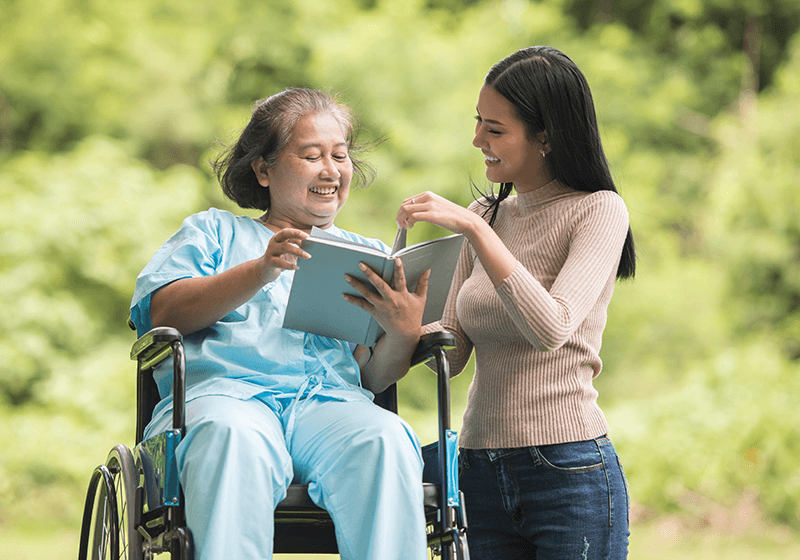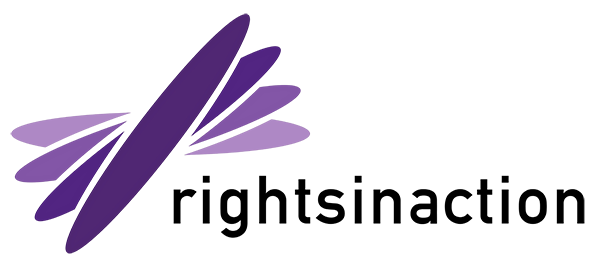Introducing The Fundamentals of Independent Disability Advocacy
The Fundamentals of Independent Disability Advocacy is an initiative of Rights in Action with the collaboration of Infinite Education & Training, and is funded through the Micro-credentialing Program, powered by the Queensland Government’s Good people. Good jobs: Queensland Workforce Strategy 2022-2032.
Scan The QR Code below




What Is The Fundamentals of Independent Disability Advocacy Program
The Fundamentals of the Microcredentials Advocacy Program offers Introductory and advance units that are complementary and stackable, allowing participants to build their skills progressively. Designed for both experienced and aspiring independent advocates, the program provides a comprehensive foundation in advocacy practice.
It is designed for both experienced and aspiring independent advocates. The program provides a comprehensive foundation in advocacy practice.
Who Is It For?
They are ideal for individuals working in, or aspiring to work in, advocacy roles—whether in community services, disability support, legal aid, or personal and peer advocacy. They are also suitable for people looking to enhance their knowledge of rights-based support.
How Is It Delivered?
All microcredentials are delivered online through CANVAS, a user-friendly learning platform chosen for its ability to support UDL and accessible learning design.
How Long Does It Take?
Each microcredential is designed to be completed flexibly, typically in 5–10 hours, depending on your pace and engagement.
Introducing The Advocacy Microcredential 1

The Fundamentals of Independent Disability Advocacy Courses Overview

MC 1: Practice and Foundational Principles of Independent Advocacy in Queensland

MC 2: Entitlements and Access to Independent Advocacy within Queensland.

MC 3: Foundations of Independent Advocacy within Australian and Queensland Law

MC 4: Advanced Communication and Relationship Skills for Independent Advocates

MC 5: Foundations in Independent Advocacy for Clients within the Tribunal Processes in Queensland
What are Micro-credential courses?

Why The Fundamentals of Independent Disability Advocacy Program?
- Recognised under the Australian Microcredential Framework.
- Backed by Credly, meaning you receive a verified digital badge upon successful completion.
- Developed in alignment with Universal Design for Learning (UDL) to ensure access for all learners.
- Created using real-life, practical examples from the Australian advocacy landscape.
- The first module on average only 10 hours to complete.
- It’s currently FREE for a limited time.
Eligibility


The Objectives Of The Program Include:
- Grow and develop the workforce by building capacity of both new and experienced advocates.
- Broaden its reach to include people with disabilities, individuals working across other sectors and those engaged in informal advocacy roles, ensuring a more diverse and empowered advocacy workforce.
- Grow the capacity of Rural & Remote and very remote communities where access to information and resources is often limited to help bridge the gaps in accessing advocacy.
What Will Participants Will Gain?
Through a combination of practical and theoretical learning, participants will gain: Practical Industry- recognised and evidence-based skills and knowledge.
- A deep understanding of advocacy practices and their responsibilities.
- The ability to effectively empower individuals and communities.
- Tools to enhance their advocacy practices across sectors.
- Potentially improve their Employment opportunities due to upskilling and advocacy understanding.

Check Out All Current Modules
Upon Completion Of Module One, Choose Another For Free
GET QUALIFIED
Get A Digital Badge To Stand Out
Upon Completion Get A Digital Badge That Can Be Applied To Your Socials

Olivia M.
No Digital Badge

James W.
Advocacy Digital Badge

Sarah T.
Advocacy Digital Badge

Tom B.
No Digital Badge
Still have a question? Email us at [email protected]
FAQ
These microcredentials are short, focused courses designed to build knowledge and practical skills in independent advocacy in Queensland. They are grounded in real-life scenarios and industry best practice across Australia.
They are ideal for individuals working in, or aspiring to work in, advocacy roles—whether in community services, disability support, legal aid, or personal and peer advocacy. They are also suitable for people looking to enhance their knowledge of rights-based support.
These microcredentials are:
- Recognised under the Australian Microcredential Framework
- Backed by Credly, meaning you receive a verified digital badge upon successful completion
- Developed in alignment with Universal Design for Learning (UDL) to ensure access for all learners
- Created using real-life, practical examples from the Australian advocacy landscape
All microcredentials are delivered online through CANVAS, a user-friendly learning platform chosen for its ability to support UDL and accessible learning design.
You will receive:
- A digital badge issued via Credly, which you can share on LinkedIn, your resume, and with employers
- Practical skills and knowledge that can be immediately applied in real-world advocacy settings
Each microcredential is designed to be completed flexibly, typically in 5–10 hours, depending on your pace and engagement.
Learners have access to:
- Guidance from experienced industry professionals
- Support from our Community Engagement Facilitator Lead at Rights In Action Inc.
- Clear, accessible learning materials designed using the Universal Design for Learning
Yes, each microcredential includes simple, practical assessments that help you demonstrate your understanding of the content. These are designed to be inclusive and relevant to real-life advocacy situations.
Absolutely. The microcredentials are modular, so you can complete one or several depending on your interests or professional development goals.
Still have a question? Email us at [email protected]

